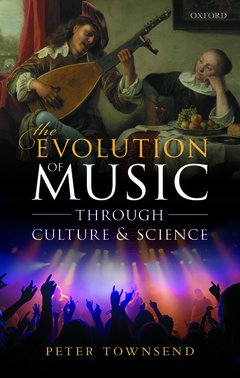The Evolution of Music through Culture and Science
Langue : Anglais
Auteur : Townsend Peter

The Evolution of Music by Culture and Science aims to recognise the impact of science on music, why it occurs, how we respond, and even to tentatively see if we can predict future developments. Technology has played an immense role in the development of music as it has enabled the production of new sounds, introduced new instruments and continuously improved and modified existing ones. Printing, musical notation, and modern computer aids to composition, plus recordings and electronic transmission have equally enabled us to have access to music from across the world. Such changes, whether just more powerful pianos, or new sounds as from the saxophone, have inspired composers and audiences alike. Acoustics and architecture play similar roles as they changed the scale and performance of concert halls, and with the advent of electronics, they enabled vast pop music festivals. No aspect of modern music making has been untouched by the synergy with scientific innovation. This is not a one-way interaction as the early attempts to make recordings were a major motivating force to design the electronics for amplifiers and these in turn inspired and enabled the designs of semiconductor electronics and modern computer technology. To appreciate the impact of technology on music does not require any prior scientific background as the concepts are invariably extremely simple and are presented here without technical detail. Understanding music and why we like different genres is far more complex, as this involves our personal background and taste. Both aspects change with time, and there is no contradiction in enjoying items as diverse as baroque madrigals, symphonies, jazz or pop music, or music from totally different cultures.
Peter Townsend's music commenced with violin lessons at the age of 4, he has played in quartets and orchestras, researched violin making techniques, lectured on physics of music, and sings (baritone). His research in physics and engineering is unusually diverse with topics ranging from luminescence, ion implanted waveguide lasers, optical detection of breast cancer (Descartes prize finalist), to archaeology and geology. He has also worked on commercial engineering products. He has PhD and DSc degrees plus honorary doctorates from both the Autonoma Universidad de Madrid and the Bulgarian Academy of Sciences. His scientific outputs include some 550 publications, 7 books plus patents.
Date de parution : 11-2019
Ouvrage de 284 p.
14.4x22.3 cm
Thèmes de The Evolution of Music through Culture and Science :
© 2024 LAVOISIER S.A.S.
